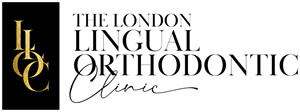If anything, 2020 has surely underlined the importance of maintaining a strong immune system; there is some early evidence that links Vitamin D with lower risks of complications for people who contract COVID-19.
Maintaining a healthy immune system
Our partner nutritionist, Farzanah Nasser, believes that a healthy mouth can help you maintain a strong immune system. Having the right diet involves a balance of foods containing vitamins, minerals, protein, fat and carbohydrates. In a recent blog, we shared one of Farzanah’s delicious recipes for a Tuna Salad Nicoise that’s rich in vitamin D.
“The autumn is a good time to assess whether you have enough vitamin D in your system. The best source is sunlight and, after the summer months, when we have spent more time outside, we should be topped up with the optimum amount. If your vitamin D levels are not at optimum levels, you may need a supplement to boost it. You can find out your vitamin D levels with a finger prick test, or, if you are particularly concerned, by talking to your GP.”
– Farzanah Nasser
It can be difficult to absorb vitamin D from your diet, especially if you are vegan. However, as the popularity of a vegan lifestyle continues to grow, more products and ingredients are being developed which have had their vitamin D optimised – for example, mushrooms that have been exposed to sunlight before cooking can absorb vitamin D.
Essential vitamins for your diet
“Don’t forget that your vitamin levels can vary. All it will take is for you to get an infection or virus and your supplies of vitamin D will deplete more quickly.”
Here are some of the other priority vitamins recommended to help us support your immune system:
- Vitamin C helps your white blood cells fight infection. It’s found in fruit and vegetables like kiwi, grapefruit, broccoli, green leafy vegetables, peas, butternut squash, cherries, spinach, papaya, berries, bell pepper and tomatoes.
- Vitamin A is found in liver, eggs, sweet potatoes, carrots, apricots, pumpkins, and mangoes. Some green leafy vegetables such as spinach and kale are also rich in beta-carotene, which your body converts into vitamin A.
- Zinc helps inhibit viral replication in the cells and is found in pumpkin seeds, beans, lamb, lentils, liver, garlic and sesame seeds.
It can be complicated to think about all the different nutrients that need to be in your diet on a daily basis, but Farzanah suggests focusing on a rainbow diet.
“Imagining all the colours of the rainbow in a series of foods will help keep things simple – this includes all of the important groups like fruit, vegetables, nuts, seeds, herbs, spices, legumes and beans.”
What about my mouth?
So, how does the mouth make a difference to the immune system? Your gut function and immune system are integrally linked, with your gut essentially being one long tube which begins in the mouth – and why a healthy mouth is really important.
Whilst our awareness of the role that bacteria plays in our physical wellbeing generally grows all the time and there are both good and bad bacteria in our bodies, our mouths are especially prone to bad bacteria. This makes maintaining a good diet and a thorough oral health routine really important to overall wellbeing.
When you brush your teeth, you are not just cleaning them; you are removing any bad bacteria from your mouth and thereby maintaining the health of your gut and immune system.
You can read more of our dental health blogs here or have a look through our recipes.













